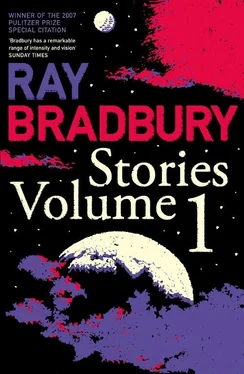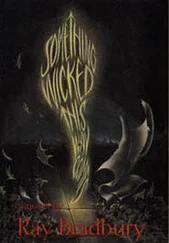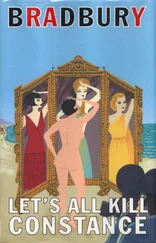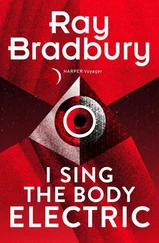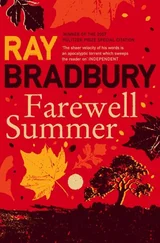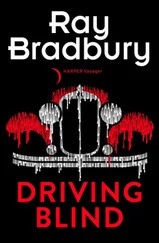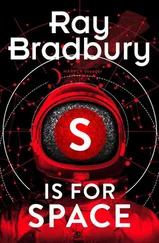The Fathers did not seem pleased at the prospect.
‘Is it because they are so odd to the eye?’ wondered Father Peregrine. ‘But what is a shape? Only a cup for the blazing soul that God provides us all. If tomorrow I found that sea lions suddenly possessed free will, intellect, knew when not to sin, knew what life was and tempered justice with mercy and life with love, then I would build an undersea cathedral. And if the sparrows should, miraculously, with God’s will, gain everlasting souls tomorrow, I would freight a church with helium and take after them, for all souls, in any shape, if they have free will and are aware of their sins, will burn in Hell unless given their rightful communions. I would not let a Martian sphere burn in Hell either, for it is a sphere only in mine eyes. When I close my eyes it stands before me, an intelligence, a love, a soul – and I must not deny it.’
‘But that glass globe you wish placed on the altar,’ protested Father Stone.
‘Consider the Chinese,’ replied Father Peregrine imperturbably. ‘What sort of Christ do Christian Chinese worship? An oriental Christ, naturally. You’ve all seen oriental Nativity scenes. How is Christ dressed? In Eastern robes. Where does He walk? In Chinese settings of bamboo and misty mountain and crooked tree. His eyelids taper. His cheekbones rise. Each country, each race adds something to Our Lord. I am reminded of the Virgin of Guadalupe, to whom all Mexico pays its love. Her skin? Have you noticed the paintings of her? A dark skin, like that of her worshipers. Is this blasphemy? Not at all. It is not logical that men should accept a God, no matter how real, of another color. I often wonder why our missionaries do well in Africa, with a snow-white Christ. Perhaps because white is a sacred color, in albino, or any other form, to the African tribes. Given time, mightn’t Christ darken there too? The form does not matter. Content is everything. We cannot expect these Martians to accept an alien form. We shall give them Christ in their own image.’
‘There’s a flaw in your reasoning, Father,’ said Father Stone. ‘Won’t the Martians suspect us of hypocrisy? They will realize that we don’t worship a round, globular Christ, but a man with limbs and a head. How do we explain the difference?’
‘By showing there is none. Christ will fill any vessel that is offered. Bodies or globes, He is there, and each will worship the same thing in a different guise. What is more, we must believe in this globe we give the Martians. We must believe in a shape which is meaningless to us as to form. This spheroid will be Christ. And we must remember that we ourselves, and the shape of our Earth Christ, would be meaningless, ridiculous, a squander of material to these Martians.’
Father Peregrine laid aside his chalk. ‘Now let us go into the hills and build our church.’
The Fathers began to pack their equipment.
The church was not a church but an area cleared of rocks, a plateau on one of the low mountains, its soil smoothed and brushed, and an altar established whereon Brother Mathias placed the fiery globe he had constructed.
At the end of six days of work the ‘church’ was ready.
‘What shall we do with this?’ Father Stone tapped an iron bell they had brought along. ‘What does a bell mean to them ?’
‘I imagine I brought it for our own comfort,’ admitted Father Peregrine. ‘We need a few familiarities. This church seems so little like a church. And we feel somewhat absurd here – even I; for it is something new, this business of converting the creatures of another world. I feel like a ridiculous play actor at times. And then I pray to God to lend me strength.’
‘Many of the Fathers are unhappy. Some of them joke about all this, Father Peregrine.’
‘I know. We’ll put this bell in a small tower for their comfort, anyway.’
‘What about the organ?’
‘We’ll play it at the first service, tomorrow.’
‘But, the Martians—’
‘I know. But again, I suppose, for our own comfort, our own music. Later we may discover theirs.’
They arose very early on Sunday morning and moved through the coldness like pale phantoms, rime tinkling on their habits: covered with chimes they were, shaking down showers of silver water.
‘I wonder if it is Sunday here on Mars?’ mused Father Peregrine, but seeing Father Stone wince, he hastened on, ‘It might be Tuesday or Thursday – who knows? But no matter. My idle fancy. It’s Sunday to us . Come.’
The Fathers walked into the flat wide area of the ‘church’ and knelt, shivering and blue-lipped.
Father Peregrine said a little prayer and put his cold fingers to the organ keys. The music went up like a flight of pretty birds. He touched the keys like a man moving his hands among the weeds of a wild garden, startling up great soarings of Beauty into the hills.
The music calmed the air. It smelled the fresh smell of morning. The music drifted into the mountains and shook down mineral powders in a dusty rain.
The Fathers waited.
‘Well, Father Peregrine.’ Father Stone eyed the empty sky where the sun was rising, furnace-red. ‘I don’t see our friends.’
‘Let me try again.’ Father Peregrine was perspiring.
He built an architecture of Bach, stone by exquisite stone, raising a music cathedral so vast that its furthest chancels were in Nineveh, its furthest dome at St Peter’s left hand. The music stayed and did not crash in ruin when it was over, but partook of a series of white clouds and was carried away among other lands.
The sky was still empty.
‘They’ll come!’ But Father Peregrine felt the panic in his chest, very small, growing. ‘Let us pray. Let us ask them to come. They read minds; they know .’
The Fathers lowered themselves yet again, in rustlings and whispers. They prayed.
And to the East, out of the icy mountains of seven o’clock on Sunday morning or perhaps Thursday morning or maybe Monday morning on Mars, came the soft fiery globes.
They hovered and sank and filled the area around the shivering priests. ‘Thank you: oh, thank you, Lord.’ Father Peregrine shut his eyes tight and played the music, and when it was done he turned and gazed upon his wondrous congregation.
And a voice touched his mind, and the voice said:
‘We have come for a little while.’
‘You may stay,’ said Father Peregrine.
‘For a little while only,’ said the voice quietly. ‘We have come to tell you certain things. We should have spoken sooner. But we had hoped that you might go on your way if left alone.’
Father Peregrine started to speak, but the voice hushed him.
‘We are the Old Ones,’ the voice said, and it entered him like a blue gaseous flare and burned in the chambers of his head. ‘We are the old Martians, who left our marble cities and went into the hills, forsaking the material life we had lived. So very long ago we became these things that we now are. Once we were men, with bodies and legs and arms such as yours. The legend has it that one of us, a good man, discovered a way to free man’s soul and intellect, to free him of bodily ills and melancholies, of deaths and transfigurations, of ill humors and senilities, and so we took on the look of lightning and blue fire and have lived in the winds and skies and hills forever after that, neither prideful nor arrogant, neither rich nor poor, passionate nor cold. We have lived apart from those we left behind, those other men of this world, and how we came to be has been forgotten, the process lost; but we shall never die, nor do harm. We have put away the sins of the body and live in God’s grace. We covet no other property; we have no property. We do not steal, nor kill, nor lust, nor hate. We live in happiness. We cannot reproduce; we do not eat or drink or make war. All the sensualities and childishnesses and sins of the body were stripped away when our bodies were put aside. We have left sin behind. Father Peregrine, and it is burned like the leaves in the autumn, and it is gone like the soiled snow of an evil winter, and it is gone like the sexual flowers of a red-and-yellow spring, and it is gone like the panting nights of hottest summer, and our season is temperate and our clime is rich in thought.’
Читать дальше
